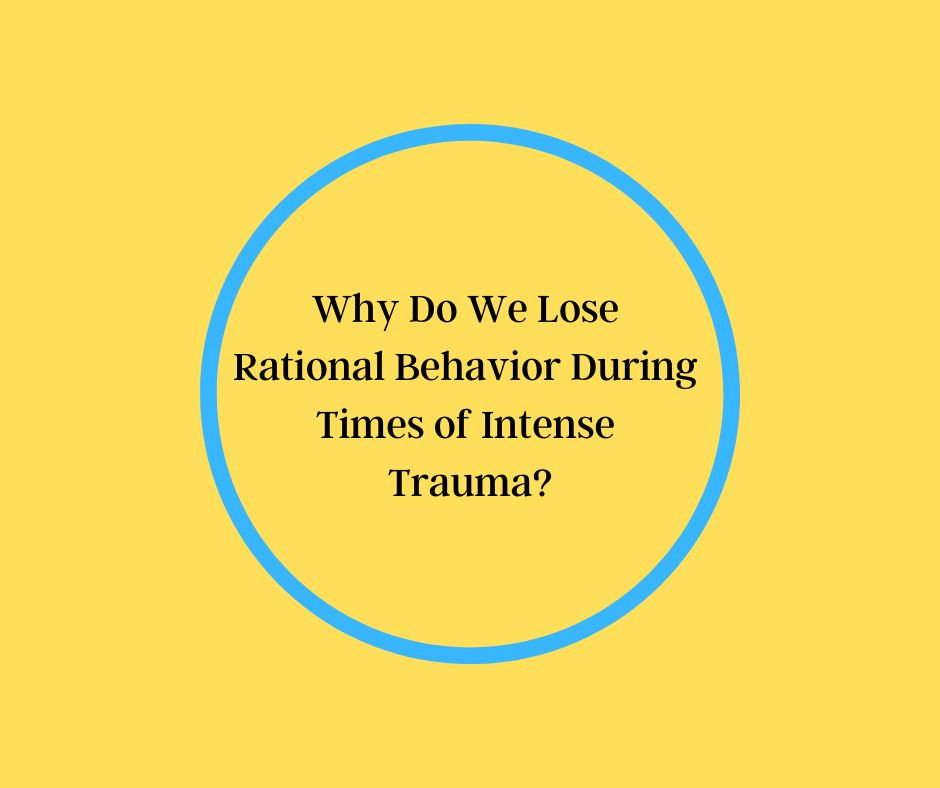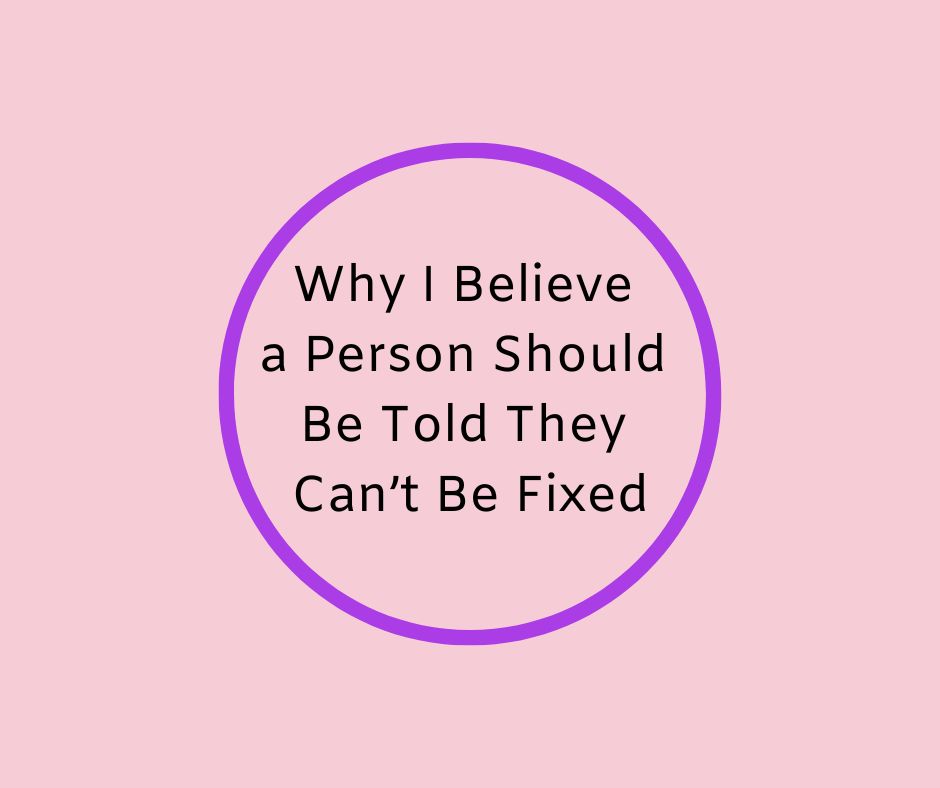I received a letter from a man who had been very ill. During some of that time he was delusional, confused, disoriented and agitated. His family has told him that during the time of his illness he was mean, uncooperative, a really nasty person. He is now puzzled by how he could possibly be that person they described.
As people approach death in the weeks, days, and even hours they can experience the same behavior this gentleman described. It has the medical name of terminal agitation.
Why do we say and do what we say and do during times of intense trauma? I’m not a psychologist, but it seems to me that during these times (which can be from either illness or approaching death) we tend to lose touch with all the "conditioning" we have experienced in our life. Instructions on how to do and say the "correct things,'' how to be socially correct, are gone.
Our base nature comes out when we are in pain, other worldly, and on high doses of all kinds of medications. We are unconsciously expressing the terrible situation we were in. Our everyday “manners” are of no importance here.
When a person is in an agitated state either in recovery or approaching death the "governor" is off. The training, thinking switch is off. The survival, get me out of here switch is on.
When the end of life is approaching, the line between this world, this reality and another reality, is thinned. The person has one foot in both worlds. I think with pain medications, intense physical pain, dehydration, the body malfunctions (even when death is not approaching or is approaching but is later reversed) we slip out of this world and into another.
What we watchers consider rational behavior is generally gone. Unlike the movies, where the person says “I love you, take care of the children” closes their eyes and dies. In real life a dying person breathes strangely, talks about and to people we can’t see or hear, often shows fear, restlessness, agitation, and yes, may say angry, “mean” words. All of this is the normal, natural part of being very sick and possibly dying.
Something More... about Why Do We Lose Rational Behavior During Times of Intense Trauma?
I believe that knowledge reduces fear and that in our society there is a considerable lack of knowledge about the normal, natural dying process. I have a compilation of my most popular blog articles that address the many facets of the normal, natural way that people die. They are called, Knowledge Reduces Fear: A Resource for End of Life Education and Knowledge Reduces Fear Volume 2: A Resource for End of Life Education . For more on pain management at end of life please consider, Pain at End of Life: What You Need to Know About End of Life Comfort and Pain Management .








4 comments
Paula Schneider
Barbara, I liked your answer to Cathy. As you know, on January 8, I lost the love of my life. At the very end of his “labor,” which lasted only 24 hours during which he denied pain to me, he seized and vomited a large amount of black blood. His face did not even look like my sweet Larry and I felt at the time that it was because he had seized and struggled to breathe while aspirating old blood. To be honest, it was a haunting sight, one I feel I hope one day be able to erase from my memory. Your explanation helped. Thank you. I want to mention that in the early weeks after his passing, I was in deep, profound mourning and wondered if I’d make it through. I talked real slow, so I’m told, and struggled to get thoughts out. Now that I am emerging from that very dark place, I reflect and feel that parts of my brain and mind just shut down. Psychological or physical or both? Probably both. Grieving is a most interesting phenomenon, and while I’m not through with it yet and it’s not through with me, I feel I will get through this. And, yes, at times in the past 4 months, I feel I have been abrupt and short with my friends, especially when I perceived they had no real idea of what I was feeling at the time. That is definitely NOT my normal personality and I have apologized to them for any hurt I may have caused.
———
BK Books replied:
Hi Paula, grief has a pattern also. First numbness, then so many emotions and gradually ever so slowly time begins to fill in the moments between the pain. You might find my booklet My Friend, I Care helpful in understanding your grief. Blessings to you during this challenging time. Barbara
Barbara, I liked your answer to Cathy. As you know, on January 8, I lost the love of my life. At the very end of his “labor,” which lasted only 24 hours during which he denied pain to me, he seized and vomited a large amount of black blood. His face did not even look like my sweet Larry and I felt at the time that it was because he had seized and struggled to breathe while aspirating old blood. To be honest, it was a haunting sight, one I feel I hope one day be able to erase from my memory. Your explanation helped. Thank you. I want to mention that in the early weeks after his passing, I was in deep, profound mourning and wondered if I’d make it through. I talked real slow, so I’m told, and struggled to get thoughts out. Now that I am emerging from that very dark place, I reflect and feel that parts of my brain and mind just shut down. Psychological or physical or both? Probably both. Grieving is a most interesting phenomenon, and while I’m not through with it yet and it’s not through with me, I feel I will get through this. And, yes, at times in the past 4 months, I feel I have been abrupt and short with my friends, especially when I perceived they had no real idea of what I was feeling at the time. That is definitely NOT my normal personality and I have apologized to them for any hurt I may have caused.
———
BK Books replied:
Hi Paula, grief has a pattern also. First numbness, then so many emotions and gradually ever so slowly time begins to fill in the moments between the pain. You might find my booklet My Friend, I Care helpful in understanding your grief. Blessings to you during this challenging time. Barbara
Cathy Mendini
My Dad died a week of abdominal surgery. He had only 40% chance of getting through the surgery and recovery due to an autoimmune disease, heart issues, and age. He was 87 and was on prednisone since he was 64. He was in such pain so he had the surgery to remove a diverticulitis non cancerous growth. When we were told he passed in rehab we noticed his lower jaw was jutted out . He looked like he was in pain and they said maybe he had a blood clot. My moms mouth was open and she was peaceful. Why do you think my Dads lower jaw was jutted out and his teeth were showing when he died. It haunts me and it disturbs me. Any help would be appreciated for peace of mind. Thank you
———
BK Books replied:
Hi Cathy, think of a woman giving birth, straining and pushing to get the baby out. Not always a pretty sight. Dying has a labor to it also and some of us have to work harder to get out of our body than others. Your dad was “pushing” to get out of his body. Nothing bad was happening. All very normal, just hard work. Your mom just had an easier labor. Blessings! Barbara
My Dad died a week of abdominal surgery. He had only 40% chance of getting through the surgery and recovery due to an autoimmune disease, heart issues, and age. He was 87 and was on prednisone since he was 64. He was in such pain so he had the surgery to remove a diverticulitis non cancerous growth. When we were told he passed in rehab we noticed his lower jaw was jutted out . He looked like he was in pain and they said maybe he had a blood clot. My moms mouth was open and she was peaceful. Why do you think my Dads lower jaw was jutted out and his teeth were showing when he died. It haunts me and it disturbs me. Any help would be appreciated for peace of mind. Thank you
———
BK Books replied:
Hi Cathy, think of a woman giving birth, straining and pushing to get the baby out. Not always a pretty sight. Dying has a labor to it also and some of us have to work harder to get out of our body than others. Your dad was “pushing” to get out of his body. Nothing bad was happening. All very normal, just hard work. Your mom just had an easier labor. Blessings! Barbara
Abraham Alonzo
End of life care in simple terms.
End of life care in simple terms.
Tamara Owens
I like that I get e-mails about end of life education. I lost my dad and I would have loved to have had some of these books to turn too, when he was mean, angry and just plain rude. I know now that he was hurting, he was dying and he didn’t have control of his life/death. I still loved him no matter what! He would of been the same.
———
BK Books replied:
Hi Tamera, it is so hard when our special person is mean and angry as death approaches. We, who care about them, want to be supportive but it is hard when we feel hurt and angry ourselves. It makes losing them even harder. Thank you for sharing. Blessings! Barbara
I like that I get e-mails about end of life education. I lost my dad and I would have loved to have had some of these books to turn too, when he was mean, angry and just plain rude. I know now that he was hurting, he was dying and he didn’t have control of his life/death. I still loved him no matter what! He would of been the same.
———
BK Books replied:
Hi Tamera, it is so hard when our special person is mean and angry as death approaches. We, who care about them, want to be supportive but it is hard when we feel hurt and angry ourselves. It makes losing them even harder. Thank you for sharing. Blessings! Barbara